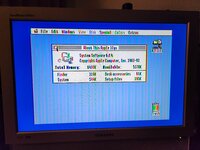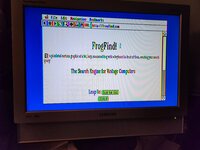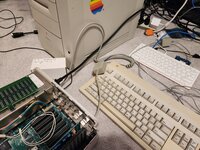Looks like its the same problem I'm having. Printing works fine since PAP usually deals with small packet and its mostly outgoing to the host. Also, tcpdump is working for me, in that I can see the contents of the packets. It might not be 100% perfect information, but at least I can see when data is being sent.
@dougg3 don't worry about the kernel patch right now. Its a bit off topic for this thread anyway. The problem seems mostly cosmetic in that NBP lookups only show the contents of the first (or last, I can't remember) network listed in atalkd.conf.
As for getting it to work on the RPi400 (64-bit ARM). I had to change the device to "/dev/AMA0" in setup_and_run (see above) to reflect the use of the GPIO serial port and add the line "arm_64bit=0" to /boot/config.txt to compile the kernel module. I suspect it would have worked fine in 64bit mode, but apt isn't pulling the correct version of the kernel header files.
@dougg3 don't worry about the kernel patch right now. Its a bit off topic for this thread anyway. The problem seems mostly cosmetic in that NBP lookups only show the contents of the first (or last, I can't remember) network listed in atalkd.conf.
As for getting it to work on the RPi400 (64-bit ARM). I had to change the device to "/dev/AMA0" in setup_and_run (see above) to reflect the use of the GPIO serial port and add the line "arm_64bit=0" to /boot/config.txt to compile the kernel module. I suspect it would have worked fine in 64bit mode, but apt isn't pulling the correct version of the kernel header files.



